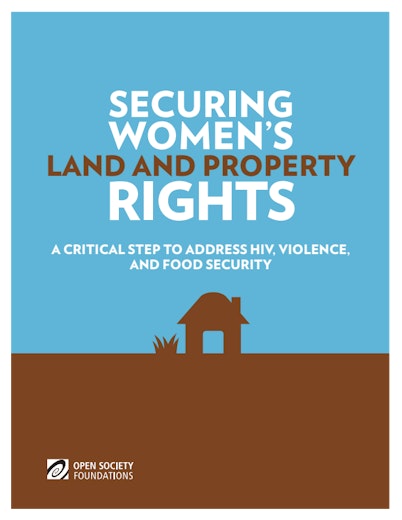A Victory for the Rights of Women in Rural South Africa
By Sithuthukile Mkhize
Since its inception in 2008, South Africa’s Traditional Courts Bill has been a concern for rural citizens. It was drafted to replace an outdated law about the role of traditional courts in the country's legal system. Seeking to strengthen traditional court structures, the bill undermines the rights and values enshrined in our constitution because it:
- makes traditional leaders like chiefs presiding officers in the court, therby granting them sole administration of customary law;
- creates a second-class justice system for 18 million South Africans by no longer allowing citizens to voluntarily affiliate with traditional structures, breaking with the Constitutional principle of one law for one nation;
- re-imposes apartheid’s tribal identities and authority structures on rural people without their choice, denying citizens the right to determine their own cultural identity and customary affiliation;
- excludes women from equally contributing to the development of customary law, and failed to address abuse and prejudice against women in customary contexts that deprive them of rights like land and property;
- was drafted in a top-down manner and without adequate consultation with rural people.
As a result of civil society outcry about the lack of public involvement and consultation, particularly by rural women, the bill was moved from our National Assembly to a local review at the National Council Provinces. This move was intended to allow greater public input at the provincial level before advancing the bill to final consideration.
In May 2012 the government began public consultations about the bill in every province. This process was intended to educate and inform the public, particularly those affected by pending legislation—notifying them of all hearings about it, including dates, times, and venues, and to offer them a space to participte. It was evident that the government did not follow procedures and that many people affected by the bill remained uninformed.
My organization, the Women’s Legal Centre, was particularly concerned with the bill’s impact on rural women. We joined with other nongovernmental organizations to form the Alliance for Rural Democracy in April 2012, leading a public campaign against the bill. We published literature, reached out to the media, held public events including the monitoring of government hearings on the bill, and actively engaged both members of government responsible for the bill and residents of rural communities most affected by it.
After our efforts, 5 of our 9 provinces rejected the bill outright, and only 2 provinces supported it. It’s very rare that a majority of South Africa’s provinces do not support legislation. Without popular or provincial support, and subject to growing pressure from civil society to withdraw the bill, the parliament scrapped it from consideration in February 2014.
This was the result the hard work of a coallition of concerned organizations, but the threat is not entirely passed. This is not the first time the bill has been withdrawn, and the possibility that a similar bill may be reintroduced remains. But for now, the withdrawal of the Traditional Courts Bill is a victory for rural women’s land and property rights, which are fundamental to their health and well-being.
The Women’s Legal Centre is a grantee of the Open Society Foundations.
Sithuthukile Mkhize is an attorney with the Women’s Legal Centre.

